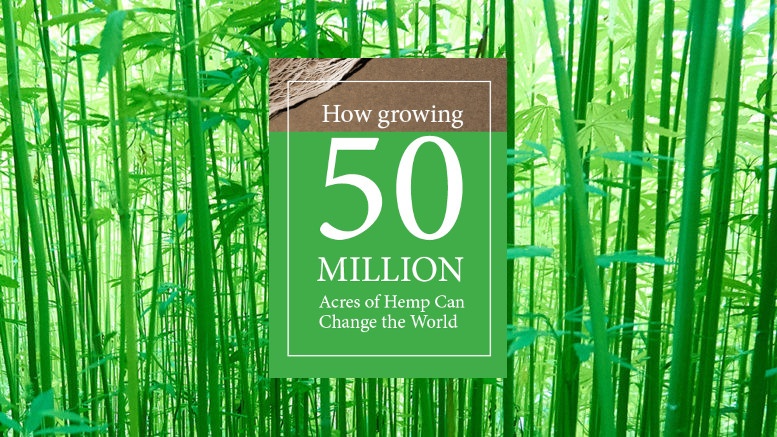A fast-growing and cost effective hemp industry can fulfill its economic development and environmental promise only through widespread implementation of smart technology systems, a white paper released today suggests.
The paper, from Canadian Industrial Hemp Corporation (CIHC) envisions “How Growing 50 Million Acres of Hemp Can Change the World,” suggesting hemp biomass can serve as a feedstock in tech-enabled production to replace highly polluting products such as petroleum-based polymer plastics, concrete and fiberglass.
“Establishing the primary processing technologies needed to accelerate the opportunities in hemp fiber is a critical factor in justifying the planting of 50 million acres of this amazing crop,” according to the paper, written by CIHC CEO Robert Ziner. “Only a technology-driven, cost-effective hemp industry will be able to redefine the economics of production to better serve the market.”
15-year plan
Ziner posits a scenario in which the global implementation of hemp stalk processing systems is vastly accelerated as annual global cultivation of hemp climbs to 50 million acres within 15 years. Such hyper-development can create hundreds of thousands of new jobs and a new multi-billion dollar industry while addressing the critical environmental issues, the white paper suggests.
As an example, CIHC calculates that fully automated decortication technology that can produce 10 tons of hemp per hour could bring annual revenues of $245.6 billion, and sequester 3 billion tons of CO2.
Ziner, who has more than 30 years in the building materials distribution and secondary wood processing industries, is leading development of CIHC’s advanced hemp stalk processing and optimization system.
DOWNLOAD THE WHITE PAPER: How Growing 50 Million Acres of Hemp Can Change the World

